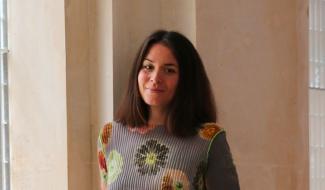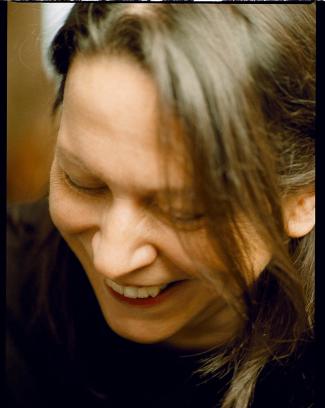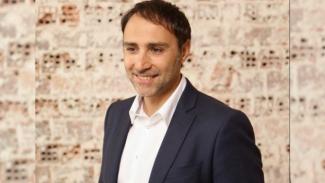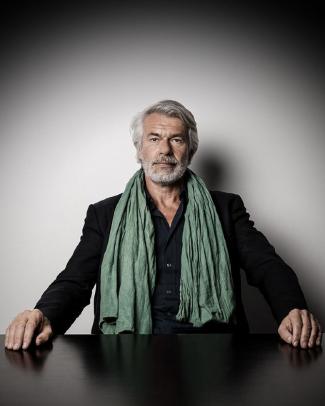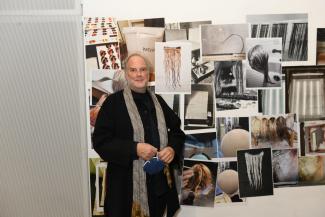About the Martin Margiela exhibition
Thursday 09 Dec 2021 from 6pm to 7:30pm
Free
In english
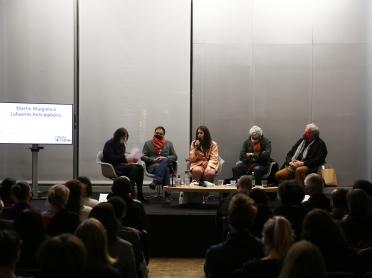
A conversation about the works of Martin Margiela presented in the exhibition with the authors of the catalogue and the graphic designer Irma Boom who designed it.
All these subjects and many more will be discuss during this talk.
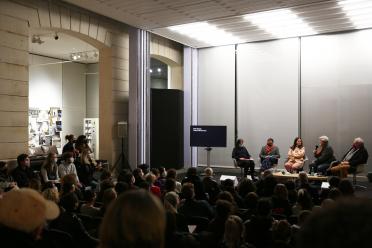
She was the director of Lafayette Anticipations in Paris, where she has curated the shows by Martine Syms, Neil Beloufa, the group show Coming Soon, Issy Wood, Cyprien Gaillard (also at Palais de Tokyo), Martin Margiela, Marguerite Humeau and Jean-Marie Appriou. She is currently preparing a solo show by Diego Marcon (2026).
In 2020 she was the curator of the Riga Biennial, "and suddenly it all blossoms", and director of the feature film based on the exhibition. From 2011 to 2019, she was curator at the Palais de Tokyo where she has presented, among others, the cartes blanches to Tomás Saraceno, ON AIR, and to Tino Seghal. She has also curated the exhibitions of Marguerite Humeau, Ed Atkins, Helen Marten and David Douard, as well as the group exhibition Le bord des mondes.
She regularly collaborates with international institutions, such as Art Explora, the MoMA PS1, Nottingham Contemporary, the Stedelijk Museum, Palais de Tokyo, or the Château de Versailles.
Rebecca Lamarche-Vadel regularly publishes in French and international journals and catalogs, and participates in seminars and juries in France and abroad.
Irma Boom est une des figures majeures du graphisme international.
Après des études à l’AKI de Enschede, Irma Boom commence sa carrière au sein du groupe Sdu de La Haye. En 1991, elle crée son propre bureau à Amsterdam, l’Irma Boom Office. Cette même année, la multinationale SHV lui confie la tâche de réaliser une édition pour le centenaire de son existence : un livre de plus de 2000 pages, publié en 1996, aujourd’hui considéré comme un symbole du « Dutch Design ».Il a amené d’autres commanditaires néerlandais ou étrangers à vouloir travailler avec elle, par exemple Vitra, Zumtobel et Ferrari.
Pour ses réalisations, Irma Boom a reçu de nombreuses distinctions, dont plusieurs fois le prix couronnant aux Pays-Bas le livre le mieux conçu graphiquement, ainsi que le prestigieux Gutenberg-Preis en 2001 ou encore, en 2012, le Prix Amsterdam. La même année, la Médaille d’Honneur pour l’Art et la Science, décernée par la reine Beatrix, est venue récompenser son travail.
Nombre de ses livres sont présents dans les collections du MoMA (New York), du Centre Pompidou ou encore du Museum für Gestaltung de Zurich.
Friedrich Meschede est historien de l'art et commissaire d'exposition.
À la tête de la Kunsthalle de Bielefeld pendant huit ans, qu'il quittera en 2019, il a également dirigé les expositions temporaires du Museu d'Art Contemporani (MACBA) de Barcelone de 2008 à 2011, du Künstlerprogramm Visual Art Department du DAAD de 1992 à 2008 et du Westfälischer's Kunstverein de Münster de 1989 à 1992.
Connu pour sa conception exigeante de l'art, sa dernière exposition à la Kunsthalle de Bielefeld, "L'homme qui marche - Verköperung des Sperrigen" (09/11/19) s'est concentrée sur la sculpture du modernisme classique à nos jours, dans le but de retracer l'intérêt de la sculpture pour le beau et l'encombrant.
